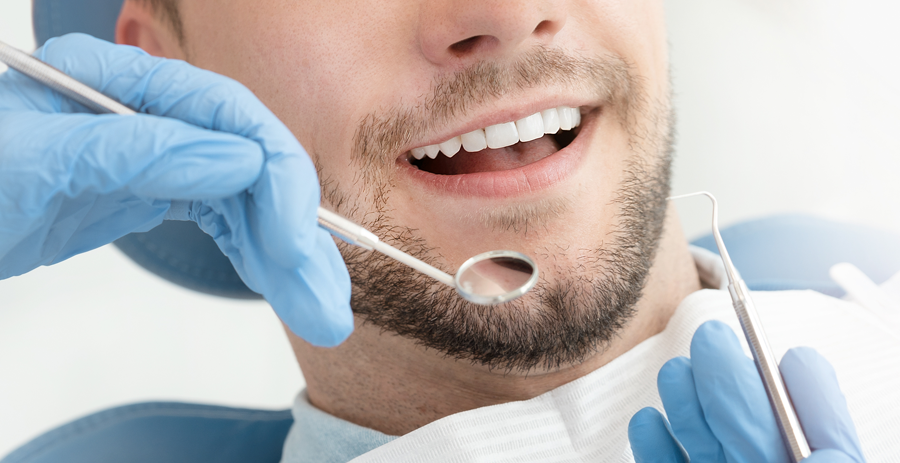 Bleeding gums can occur for many reasons. Sometimes, they are caused by a minor injury, or it may be due to tartar build-up on the teeth. Most of the time, however, bleeding gums have other underlying health issues. When bleeding gums are not treated, it can lead to abscesses, periodontal pockets, and infections that may spread into the surrounding tissue.
Bleeding gums can occur for many reasons. Sometimes, they are caused by a minor injury, or it may be due to tartar build-up on the teeth. Most of the time, however, bleeding gums have other underlying health issues. When bleeding gums are not treated, it can lead to abscesses, periodontal pockets, and infections that may spread into the surrounding tissue.
What Causes Bleeding Gums?
The answer is not that simple because there are so many different things that can happen to your gums that cause them to bleed. It may result from various dental health conditions, but it may also be a symptom of other illnesses.
Here are the things that can cause bleeding gums:
- Gingivitis: One of the common causes of gum bleeding is gingivitis or periodontal disease. This occurs when the plaque builds up on the teeth, and the root becomes inflamed. For mild gingivitis, the gums may become irritated or tender when you brush the teeth, but this is generally temporary. If it continues for longer than a few days, you should consult with a periodontist—a dentist who treats and diagnoses gum diseases and their consequences.
- Vitamin deficiencies: Your gums may bleed easily if your diet lacks vitamin C and K.
- Blood clotting disorder: A person that lacks clotting cells may be more susceptible to bleeding gums.
- Complications of other diseases: Bleeding gums can also be a sign that you’re suffering from something much worse, such as oral cancer. Therefore, it’s important to talk to your dentist immediately if you’re concerned that your bleeding gums are connected to something more serious. There are also medications, especially prescription drugs, that can cause the gums to bleed. If you do suspect that your bleeding gums are connected to a more severe illness, then you should schedule an appointment with your physician to discuss the situation.
- Faulty dental procedures: If this is the case, you should visit your dentist immediately for a proper assessment.
Preventing Bleeding Gums: How A Bankstown Dentist Can Help You
If your gums start bleeding every time you brush or notice any swelling or redness on your gums, reach out to your neighborhood Bankstown Dentist if you’re in Sydney. Just like any other disease, you need to consult an expert to get guidance on what to do.
Here are many ways a dental professional can help you avoid bleeding gums, including:
1. Educate About Proper Oral Hygiene
One of the best ways to reduce the risk of bleeding gums is by practicing good oral hygiene. To achieve this, your dentist will teach you about the proper brushing technique and other things to do to maintain a healthy mouth:
- Brushing removes plaque, which is a sticky substance that stays on the teeth. Food that is left on the teeth can get trapped between the teeth and along the gum line to grow bacteria. If not brushed away properly, bacteria break down the enamel in the gums, causing swelling, pain, and bleeding gums. It’s important to brush after every meal or at least twice a day with a soft-bristled toothbrush and fluoride toothpaste.
- Flossing is another preventive measure. Daily flossing can help remove plaque from between teeth and reduces the risk of swollen or infected gums.
- You should also rinse with mouthwash after brushing to kill any remaining bacteria after brushing and flossing.
If you do not already have a good personal hygiene routine, discuss it with your dentist; he or she may be able to recommend products or programs that will help. These simple steps will make a big difference in preventing gum disease and can help keep bleeding gums at bay.
2. Perform Professional Dental Cleaning and Check-Ups
Brushing and flossing every day is not enough to prevent dental problems like bleeding gums. While professional dental cleaning is normally done every six to 12 months, your dentist will be able to tell you if you need to come back for cleaning every three to four months.
Your dentist is the right professional to tell you whether your gums are sensitive or dry and advise you about what you should do. Bleeding gums may be caused by different factors; therefore, you should make sure that you know what is causing it before you can treat it.
No matter how much you take care of your teeth with daily brushing and staying away from sweets, you still need to visit your dentist regularly. Professional dental check-ups allow your dentist to catch any issue before it worsens. If you want to prevent bleeding gums, don’t forget to set an appointment with your local dentist at least twice a year.
3. Keep Your Diet and Nutrition in Check
Your trusted dentist can also recommend foods to eat to keep your teeth strong and gums healthy. Your diet also influences oral health, so to prevent bleeding gums, your dentist may ask you to include (and avoid) the following foods:
- A healthy diet with plenty of fruits, vegetables, whole grains, lean proteins, and low-fat dairy products is a good way to prevent periodontal issues and promote healthy gums and teeth.
- Vitamin C-rich foods like carrots, oranges, red peppers, and sweet potatoes help strengthen the gum’s lining and connective tissues.
- Vitamin K-rich foods such as kale and spinach contain nutrients necessary for normal blood clotting. You may bleed more easily if you’re deficient in vitamin K.
- Foods that are rich in niacin, such as whole grains, lean meat, eggs, and nuts, are effective against both infection and tooth decay, which are two additional risk factors for bleeding gums, so they should also be included in the daily diet.
- Reduce your carbohydrate intake to prevent gum problems. The intake of sugary foods and carbohydrates promotes the formation of plaque and the growth of bacteria.
- Drinking green tea daily is good for your gums because of a natural antioxidant called catechin.
4. Manage Gum Problems with Simple Remedies
Your dentist may tell you to prevent bleeding gums from getting worse by using antiseptic mouthwash at the onset of inflamed or swollen gums. You may also choose to rinse with salt and warm water to minimize the swelling of your gums. While these remedies may halt minor gum problems, you should visit your dentist immediately if symptoms persist or become worse.
Takeaway
Bleeding gums may seem harmless but often indicate an underlying dental issue. Common causes for bleeding include injury to the gums, brushing too hard, inflammation, or prolonged infection. Gum inflammation and bleeding should be checked by a dentist to prevent them from worsening. It’s important to seek treatment if symptoms persist, especially when there is fever along with bleeding. Prevention, however, is still better than cure, so always practice good dental habits, including visiting your dentist every six months.

